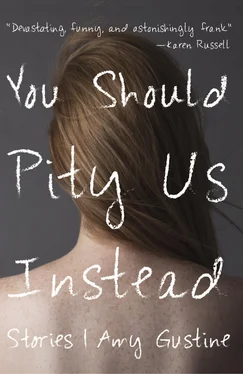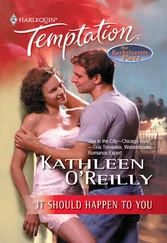On the way from the hotel to her apartment, Obi’s cell rang. Normally he didn’t answer while driving, but he’d just stopped for a red light and the phone lay at hand on the passenger seat.
“How close are you?” Karen asked.
“I checked into the hotel. I’m on my way there right now.”
“You’re in the car?” Karen knew his rules. Obi’s real name was Ken, but in college, where they met, she’d dubbed him Obi after Obi-Wan Kenobi. “You’re just so damn good.”
He’d tutored her in math, dug her car out of snowdrifts, driven her to class when it rained and, that first summer, turned down a chance to camp at Yellowstone in order to volunteer on Habitat houses. Nowadays, only strangers called him Ken.
He explained to Karen he was at a red light. “I can’t talk long.”
“Okay,” she intoned, as if he’d reported disarming one bomb of several.
“I’ll call you later.”
“Yes,” she agreed in that tone again.
He could see her sitting at the kitchen table with the phone in her hand, anxious for the all-clear. “It’ll be a while.”
“I know.”
“He’s looking for a psychologist sympathetic to rapists,” Brian said. It was past six. He sat at the kitchen table, a two-person, glass-topped rattan outfit against the kitchen’s end wall, his back to the apocalyptic Indian upholstery, to the balcony and to the blank, burning sky. The days here stretched past the breaking point. No wonder these Indians never wove a circle. Everything had to imply not the sun, but its rays.
“I don’t know anybody down there,” his father said. “Do you? Any contacts in that world?”
“Not really.”
“Well, that’s what Chris is for.” The lawyer. “How you doing on money?”
Brian thought he could hear his father’s checkbook opening. It touched him. “No, Dad, I’ve got plenty. I save most of every paycheck.”
“Good.”
A pause allowed Brian time to think of the joke. “Except for what I spend on ads.”
“You don’t have an ad in now, do you?”
“I was joking.”
“Yeah, okay, good.”
“Dad, I’m sorry about this.”
“Cool it on the ads, all right. We’ll take care of it, just…” A brief pause, then his father said, “I have to go. I got a call coming in.”
Brian admired his father’s restraint. He’d never asked why Brian had to get his kicks by paying a girl to clean his apartment naked, though Brian felt sure his father’s own sexual yearnings could be satisfied without money changing hands, unless you counted hundred-dollar-a-plate restaurants. In the twenty years since Brian’s mother died, his father had dated several lovely women before marrying Carol, a divorced pediatrician whose two kids he helped get into Loyola. At Christmas her kids bought gifts for Brian’s father at the local mall which were more creative and apt than what Brian picked up on his flights to Paris and London.
He wondered what his father had told his other family about the arrest. That’s how Brian thought of Carol and her son and daughter, even though they had a good relationship with Carol’s ex and had lived with his own father for only a few years of high school.
It was possible, even likely, Brian’s father hadn’t told them anything. In front of Brian, he’d treated the arrest for rape — technically vaginal penetration with a digit, in this case his finger — with a lawyer’s professional indifference. The details — that Brian’s ad had specified if the girl came to the job interview without a bra, he’d give her thirty dollars; without panties, fifty dollars — he’d taken in dispassionately, explaining that what mattered most was contact — Brian touching the girl’s genitalia — vs. penetration — his finger entering, however briefly or shallowly, her vagina.
“So when you’re talking to Chris, this is what you keep in mind. Contact gets you a year. Penetration, you’re looking at five to fourteen.” Guilt or innocence never came up. Maybe his father took one or the other for granted. Brian couldn’t tell.
It was nearly time for the news, so Brian turned on the TV. If Jocelyn was at the desk, he would assume she wanted nothing to do with him and go take the note off her door, saving himself another irrevocable humiliation.
Jolly’s apartment complex wrapped a large asphalt lot. The three buildings had no red-tiled roof or rounded eave; their Spanish style relied entirely on the stucco, painted a dirty yellow and punctuated by metal balconies whose railings reflected the sun in blinding shards like knife blades.
Who kills themselves in the summer? Someone who lives in Phoenix, Obi realized. If she’d lived at home his daughter would be alive. No one kills themselves during July in Toledo, Ohio. There’s January, February, March, and most of April for that. In July there is sun, and such a shame to waste it. But in the desert, no matter how many Targets and Costcos you build, how many fluorocarbons the air conditioners pump into the atmosphere, the biggest star remains a malevolence.
Star. Jolly had seemed like one, smart and beautiful, blond hair from somewhere in the family they couldn’t identify. Blue eyes from grandparents who hadn’t managed to give them to either him or Karen. Jolly majored in journalism at Ohio State, took a job in Columbus, then the promotion to Sun City. Being a newscaster wasn’t the same as acting, though Obi had feared it, too, would deliver an unnatural life, your face known by thousands whose names you never heard. So that was something else he had to do: find out whether things were going well at Jolly’s station.
The other cause Obi planned to investigate was the boyfriend they’d never met, a first-generation Lebanese guy Jolly had been on and off with for a year. Obi and Karen considered Middle Eastern men sexist and authoritarian. They worried Jolly would get taken advantage of. Obi had been able to give only the guy’s first name — Sam — to the police, and realized as he did that even that was most likely just a nickname, some truncated, Americanized version of the truth. They tracked him down anyway, through a coworker at Jolly’s station. Sam claimed he hadn’t seen Jolly for over two months. A hundred witnesses and a paper trail put him in Sonoma at a wedding the day she died.
In the parking lot, Obi took a stack of flat boxes out of the trunk along with garbage bags and a roll of packing tape. Karen had instructed him to send Jolly’s clothes and furniture to charity but to bring home anything personal, like letters, diaries, financials, jewelry, and trip mementos. To make sure he didn’t make a mistake, she’d written a list. He could throw out Jolly’s toothpaste and toothbrush, but he should bring back her makeup, her hairbrushes, and her perfume. He didn’t ask why. These were the things that had littered the bathroom counter for years, that her mother always complained she didn’t clean up.
Struggling with the boxes — too awkward to carry horizontally, yet slipping against one another when he tried to grip them in a vertical stack — Obi made his way across the lot and up the three flights of stairs to Jolly’s apartment. The day he moved her in, after the fifth climb up, he’d said, “I’m too old for this schlep. Next time you can hire movers like the rest of us grown-ups.”
Jolly kissed him on the cheek and handed him a lemonade. “You’re doing fine for a chubby schoolteacher.”
At her door Obi propped the boxes against the walkway’s railing and from his pocket fished out the keys the police had mailed. They still bore the tag with the evidence number. Sliding them into the lock, he looked up to see a note taped to the door. Her name on the outside was written in a masculine hand — large and messy, with alternately blocky and jagged lettering. Whoever put it here did so after the police had come and gone or they would have taken it. Obi stared a long moment. Would there be fingerprints? What if he smudged them? No crime, Obi reminded himself. No crime had been committed.
Читать дальше












